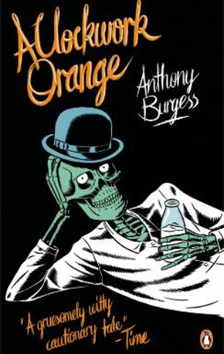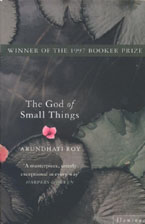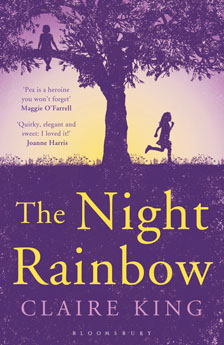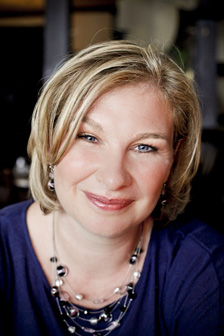Child narrators in adult fiction
by Claire KingClaire King’s haunting debut The Night Rainbow is a novel about innocence and experience, grief and compassion and the dangers of an overactive imagination, told from the viewpoint of five-year-old Pea, whose mother is wracked by grief over the recent death of her husband, Pea’s father. She picks out her favourite books for grown-ups with a child’s voice at their heart.
What I love about child narrators is the way they question the things that we take for granted, and take for granted the things we question. When we look through their eyes, the way we see the world softens and shifts.
Because of this, child narrators in adult fiction are often used to explore family situations, or broader societal issues, with their naïve interpretations shedding new light on issues ranging from emotions like grief and love, through culture and politics to murder and rape.
One of the important things about the hero of a story is that they cannot be passive – they must take action. But child protagonists are unable to effect change themselves. Rather, they are trapped as observers, ingenuous participants in their environment, and it is the tension in this that can make their stories so illuminating.
The other delight of a child narrator is voice. Whilst a child’s perspective is limited, their voice needn’t be. Without the constraints of a typical adult vocabulary, a child’s language can be inventive and strong. They can be articulate in clever ways that adult narrators cannot and really bring voice to the forefront of the book. In the ten books I’ve chosen there is an astonishing breadth and richness of language that really brings the stories to life.
In limiting myself to a Top 10, just as I’ve omitted classic novels such as To Kill a Mockingbird, Catcher in the Rye and Huckleberry Finn, so I’ve also had to leave out some of this year’s catch. A couple of notable books from 2013 that you should also look out for are William Sutcliffe’s The Wall and Barry Walsh’s The Pimlico Kid.
 A Clockwork Orange by Anthony Burgess (1962)
A Clockwork Orange by Anthony Burgess (1962)
Not often thought of as a child narrator, intelligent yet sociopathic Alex is only 15 years old as he narrates this novel. The book is set in a dystopian near-future, where Alex and his group of friends are part of an extremely violent youth sub-culture. The strength of Alex’s narration comes from the way he coolly embraces violence as a way of life, dressed up in the Russian-based argot he uses to describe his exploits.
Although it’s a strange parallel to draw, just as older novels managed to portray romance and lust intensely through economy of words and the slightest glimpse of throat, so in A Clockwork Orange, the way horrifically violent acts are described lightly, without the language itself aiming to shock, makes the terror of them much more powerful.
“… and that made the old veck start moaning a lot then, then out comes the blood, my brothers, real beautiful.”
Fifty years on, the themes of conditioning, youth sub-cultures and the potential for positive change remain relevant and contemporary.
Lives of Girls and Women by Alice Munro (1971)
Sometimes classed as a novel, but more a cross between a novel and a short-story collection with a single narrator, this book is a coming of age story chronicling a girl’s life in small town Canada as she grows into a woman.
“We were in a house as small and shut up as any boat is on the sea.”
As with so much of Alice Munro’s work, the social environment is precisely observed and articulated. The struggles of the young protagonist and her surrounding cast of characters (primarily women) in the patriarchal, parochial society are beautifully drawn, with the language evolving as Del ages.
A good book to savour over an extended period of time, rather than reading it in a few sittings like a novel.
 The God of Small Things by Arundhati Roy (1997)
The God of Small Things by Arundhati Roy (1997)
Set in Kerala, India, with a timeframe that shifts from childhood through to adulthood, and told from a third person point of view, this novel doesn’t officially have a child narrator. However, at the opening of the story, twins Rahel and Estha are seven years old and much of the novel is told in Rahel’s voice. The third person omniscient is used so skilfully that it seems as though we are looking out at the world through her eyes at the caste discriminations, fears and betrayals that surround her.
“And the air was full of Thoughts and Things to Say. But at times like these, only the Small Things are ever said. Big Things lurk unsaid inside.”
The language in this book is playful, colourful, evocative and surprising. One of my all-time favourite novels.
Everything in This Country Must by Colum McCann (2000)
Set in Northern Ireland during the 1980s, this book contains a novella with a young third-person protagonist and two short stories with first-person child narrators. The conflicts seep into the hearts and acts of the characters, sometimes in ways that the young protagonists struggle to understand. Like the Catholic girl in the title story, who lives alone with her father, having lost her mother and brother when they were hit by an army truck. Her father’s favourite horse gets trapped in the river, but he would rather see it drown than be rescued by the British soldiers who come to his aid.
“… still the rain kept coming down outside one two three and I was thinking oh what a small sky for so much rain.”
I’m Not Scared by Niccolò Ammaniti (2001, translated from Italian 2003)
Another book dealing with the implications of terrorism and social turmoil, this time set in the scorched wheat fields of the Italian countryside during the 1970s. This story of a nine-year-old boy, Michele, is narrated in past tense, with language that at times borrows from an adult’s perspective and at others is boyish – “Mama was stronger than Superman.”
Michele chances upon a traumatic secret that starts to unravel the way he sees his family and community. It’s a sinister and often poignant mystery of brutally lost innocence, with the heat wave of the summer vividly depicted, and echoing the oppressive and unspoken dangers the families are facing in their tiny community.
“Cats, when they catch lizards, play with them, they play with them even if the lizard is all open and its innards are hanging out and it has lost its tail.”
The Curious Incident of the Dog in the Night-Time by Mark Haddon (2003)
This is another of my all-time favourite novels. Mark Haddon plunges into the workings of the mind of fifteen-year-old Christopher, a teenage boy with Asperger syndrome. At the start of the book, Christopher sets out to uncover the mystery of the dead dog on his neighbour’s lawn, but ends up discovering a much more complicated situation. Indeed, much of the book revolves around the ways in which adult society complicates matters.
“Siobhan says that if you raise one eyebrow it can means lots of different things. It can mean ‘I want to do sex with you’ and it can also mean ‘I think what you just said was very stupid.’”
This novel is such a feat of language. Christopher’s voice is unique, and whilst his narration is matter-of-fact and emotionless on the face of it, it is also relentlessly truthful and blunt. This often makes it both illuminating and laugh-out-loud funny, with Christopher saying things that others think, but would never say.
 In Search of Adam by Caroline Smailes (2007)
In Search of Adam by Caroline Smailes (2007)
Jude is six years old at the start of this unique and disturbing novel, when she finds her mother dead in bed following an overdose. As if this were not enough, she is then effectively left to bring herself up, suffering horrific sexual abuse along the way with no one safe to turn to.
It sounds like a shocker of a story, and it is, but the voice of the narrator, with its quirky language and tics to some extent mask the harrowing nature of the content, like taking bitter medicine on a sugar cube. The layout of the pages is littered with lists, white space and textual emphasis that reinforce moods and themes and sometimes distract from the narrator, as though she is distracting herself.
“Her ocean eyes were open. She wasn’t sleeping. And from the corner of her mouth, a line
of
lumpy
sick
joined her to the pool that was stuck to her cheek.”
The reader’s empathy is ripped out of them from the first page and held relentlessly to the last. Not an easy read, but a brilliant one.
Room by Emma Donoghue (2010)
This novel is narrated using possibly the most limited child’s voice I’ve ever read. Not only is five-year-old Jack very young, but since he has been confined to a single room all his life, knowing only his mother (who was also captured and confined at an early age), his vocabulary and understanding of the world is extremely restricted. It can make difficult reading on all sorts of levels, but patience with the voice is rewarded by the way it provokes the reader’s adult thoughts to augment and complete what you receive through Jack’s narration. I think when you choose to write a very young first-person narrator, you are essentially laying out two stories that have to combine and complement each other in the reader’s head, which when pulled off can be very satisfying, and I do think Emma Donoghue managed that beautifully.
“Want to go to Bed.”
“They’ll find us somewhere to sleep in a little while.”
“No. Bed.”
“You mean in Room?” Ma’s pulled back, she’s staring in my eyes.
“Yeah. I’ve seen the world and I’m tired now.”
Florence & Giles by John Harding (2010)
A wonderful gothic horror tale of two children who live in a vast, creepy 19th-century New England mansion, guarded by the housekeeper and a creepy, sinister governess.
Florence & Giles has clear allusions to Henry James’ Turn of the Screw, but the star of this novel for me is the wonderful, original language used by Florence, the precocious twelve-year-old narrator. I love the utter refusal of the author to be limited by received grammar and whether or not words actually exist. The narrative sometimes has the air of Lewis Carroll or Rudyard Kipling, with much verbing of nouns and adjectives.
“The kitchen, where the stove is always burny hot, is jollied by fat Meg, our cook, smiley and elbowed in flour, often to be found flirted by John, the manservant, who seeks a kiss but is happy to make do with a floury smack.”
Twisted and dark, with a very limited setting, the reader is invited to work out what is going on and who to trust. The children are vulnerable and isolated and we have only Florence’s limited viewpoint to guide us. An absolute cracker of a novel.
Pigeon English by Stephen Kelman (2011)
Eleven-year-old Harri is a recent immigrant to the UK, who sets out with his friend Dean to uncover who is behind the killing of a boy found stabbed to death on the street outside a fried-chicken shop.
The patterns of his language, and his apparent struggle to articulate himself, are partly due to his Ghanaian roots mixing with the inner city council estate culture he finds himself growing up in, and partly because he is struggling to find the words to express his situation. Conflict and casual aggression are a daily part of his new life, and Harri, far from his home in rural Africa, is a bewildered bystander.
“You can’t see the lines but you know they’re there. You just have to carry them in your head. The tunnel behind the shopping centre is one line… I don’t even go in that tunnel. It’s just too hutious.“
As with many child narrators, Harri is both innocent and resilient, accepting the world as he finds it whilst we look on, terrified for him.
Pigeon English is a novel that brings sadness thinly veiled in humour, and what the book sets up slowly and inexorably throughout its pages, the punchline – which has to be my favourite closing line of all time – delivers.
Claire King grew up in Mexborough, South Yorkshire and studied economics at Newnham College, Cambridge and then spent twenty years working in business. Her short fiction has been published online and in print and has been recognised by BBC Radio 4 Opening Lines, New Scientist, The Bristol Short Story Prize, the Sean O’Faolain Short Story Competition and Metazen. Some of her flash fiction has appeared in FiftyTwo. She lives in southern France.
claire-king.com
The Night Rainbow is published by Bloomsbury in paperback and eBook.



